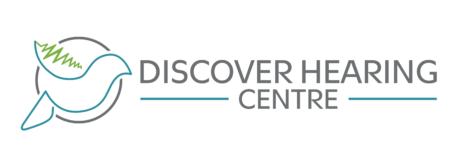Hidden Hearing Loss

Do you struggle to hear conversations in noisy environments? Misunderstand what people are saying and are always asking others to repeat themselves? Have you had a hearing test that has come back “normal”, but still feel as though something is wrong with your hearing??
Hidden hearing loss (HHL) occurs when a patient receives an audiogram that reflects normal hearing sensitivity, yet they still complain of difficulty hearing and understanding speech, especially in noisy environments. Ordinary hearing loss arises from damage to the stereocilia (hair cells within the ears) or auditory nerve. In hidden hearing loss, the structures in your ear are working just fine, and can hear sounds played at any volume and pitch. The deficit is related to a loss of synapse between the hair cells and nerve fibers. Meaning the connection between the ears and the brain is compromised, therefore the brain does not receive the full message.
With damage to the nerve cells, your hearing is still perfectly fine in quiet environments, such as in the testing room at your local hearing clinic. Only some of the cells are needed to transmit sounds is quiet environments. The trouble with hidden hearing loss starts when you’re in noisy environments. When there are lots of sounds to process, you need all cells working, and the working cells in the neural pathway can’t make up for the damaged cells. You’ll experience hidden hearing loss as your brain struggles to process all the sounds around you.
Testing for Hearing Loss
If you are displaying symptoms of hearing loss, a hearing care provider will perform a comprehensive hearing exam, which includes a pure tone audiometry test. This test is where the majority of hearing loss is detected. If the results are normal, your specialist can then perform a speech-in-noise test. This requires listening to simple sentences that are played over background noise and repeating the sentence back. If the patient is struggling to identify what is being said, they likely have hidden hearing loss or a processing disorder.
Auditory Brainstem Response (ABR) is another test used to diagnose hidden hearing loss. During this test, electrodes are attached to the head, which will then measure the auditory nerve’s response to sound or stimuli.
Symptoms of Hidden Hearing Loss
Unfortunately, there isn’t a clear set of guidelines to diagnose hidden hearing loss. Here are a few symptoms to watch out for:
- A sense that you have a hearing loss, even after “passing” a hearing test
- Hearing people incorrectly
- Difficulty focusing in busy/ noisy settings
- Feeling easily distracted
- Withdrawn from social settings due to inability to hear or understand others
- Choosing a quieter setting for conversations
Causes
Researchers are not exactly sure of the cause of HHL. Some suggest that a combination of aging and noise pollution are contributing factors of this form of hearing loss. There is also some indication that certain types of illness and disorders ( hepatitis, Guillain-Barre syndrome, food poisoning, the flu, Zika virus) that attack the myelin could also cause HHL. The myelin is a substance responsible for insulating the brain cells within the ears.
You Might Also Like: 6 Benefits of Treating Hearing Loss
Treatment of Hearing Loss
Use of Hearing Aids- Is the best form of treatment for Hidden Hearing Loss.
Treatment of low-gain hearing aids that offer more noise reduction is one option. The other option is using hearing aids that have advanced features such as speech-in-noise filtering and directional microphones, which will help individuals hear better when there is a lot of background noise.
Assistive Listening Devices: mobile apps that can caption live conversations or personal FM systems are great tools to use when struggling to hear or understand conversations in loud environments.
There are some strategies that individuals can use to help improve their communication:
- Asking people to speak in a voice that is louder, slower, and to enunciate their words.
- When having a conversation, reduce the space between you and the speaker
- Try to reduce background noise or move to an area where it’s easier to hear
- Being able to see the speaker’s mouth helps with this form of hearing loss
Like any kind of hearing loss, hidden hearing loss can be challenging and affect you in ways you’re not even aware of. Even if you are told your hearing is “normal”, it is important to advocate for yourself and acknowledge that the problem is there. Hearing Specialists are here to help you navigate through the treatment process and to help find a solution that best fits your needs.
You Might Also Like
Top 4 Major Causes of Hearing Loss
What Is Tinnitus? Causes, Symptoms, and Treatment Options
Does Tinnitus Get Worse With Age?
Have Questions?
Call our office if you have any questions about your hearing loss or anything else related to hearing. We are happy to help and answer any questions you may have.





